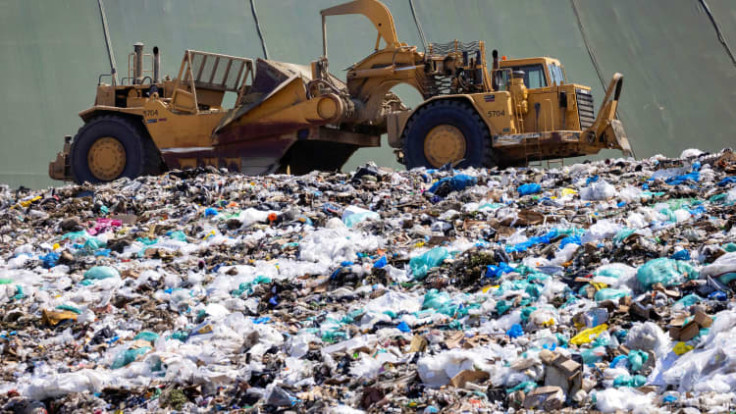Bollegraaf Group and Greyparrot Ink Strategic Partnership to Revolutionise Waste Management with AI
Bollegraaf and Greyparrot united expertise in machinery and AI, aiming to enhance waste management amidst rising regulatory demands.

Bollegraaf Group, a prominent recycling conglomerate in the Netherlands, is embarking on a strategic venture with Greyparrot, an innovative artificial intelligence (AI) startup based in the United Kingdom.
Greyparrot specialises in leveraging computer vision for waste analytics, a technology that holds promise to "transform global waste management".
Bollegraaf, a reputable manufacturer of Material Recovery Facilities (MRFs) and full recycling systems with origins dating back to its inception as a baler machinery maker in 1961, has been gradually expanding into AI.
In recent years, the company developed an innovation test centre in the Netherlands and assembled an in-house AI team to investigate the integration of AI analytics with its recycling gear, which led to the first commercial deployment.
Meanwhile, Greyparrot, founded in 2019 and a noteworthy TC Disrupt alumnus, has spent nearly half a decade researching and implementing AI solutions for municipal trash management. Its emphasis on developing "waste intelligence" through data analytics on discarded materials, particularly plastics, meets the pressing demand for improved recyclable product quality.
Furthermore, Greyparrot's technology allows for the recovery of valuable components from mixed or polluted waste streams, reducing the environmental impact of landfills and incineration.
Central to Greyparrot's mission is the transition from being solely a data provider to becoming an orchestrator of decisions, with AI driving sorting and recovery machinery for optimal efficiency. This shift is imperative in the face of escalating global waste production, necessitating more sophisticated waste management solutions to prevent societies from drowning in refuse.
In a news release, Greyparrot says: "The collaboration will bring forth revolutionary smart recycling plants that are fully automated and agile, unlocking new value in waste streams while diverting millions of tons of waste away from landfills, oceans and incinerators.
"In a development set to transform waste management... Greyparrot and Bollegraaf commit to developing further products that combine the strengths of both companies to make the vision of fully automated and intelligent sorting facilities a reality."
With over 50 per cent of the global recycling plant market and turnkey recycling solutions, Greyparrot believes Bollegraaf is well-positioned to provide the physical infrastructure, while Greyparrot's ability to embed AI waste analytics into software and hardware systems adds an important digital layer.
In 2023 alone, the business claims its Analyser assisted facilities in analysing more than 25 billion trash objects, categorising them into 70-plus categories in real time to disclose seven layers of data, including material kind, financial worth, brand and greenhouse gas (GHG) emissions.
According to Greyparrot, the world is anticipated to generate 3.4 billion tonnes of garbage each year by 2050. With approximately 5,000 municipal solid waste facilities in operation around the world, the company believes there is an urgent need to build more next-generation plants and retrofit older ones with new technologies such as AI to speed up processing times and improve recycling rates in order to meet the growing waste tsunami.
Mikela Druckman, CEO and co-founder of Greyparrot accentuated the collaborative nature of the partnership, highlighting Bollegraaf's position as a global leader in constructing recycling infrastructure.
The amalgamation of expertise between Bollegraaf and Greyparrot aims to expedite the development and deployment of smart Material Recovery Facilities (MRFs), revolutionising waste management practices worldwide.
"Getting AI waste analytics in the hands of more plant managers, more quickly, will provide the industry the data-driven insights needed to build and operate smart MRFs that unlock new value from recovered materials and decrease the environmental impact of waste," Druckman adds.
As part of their strategic alliance, Bollegraaf is transferring its AI vision business to Greyparrot, including a team of six professionals and associated technologies. Additionally, Bollegraaf is making a significant cash investment in Greyparrot, reports said.
The partnership entails Bollegraaf serving as a global distributor for Greyparrot's AI camera system hardware, which is currently deployed across numerous recycling facilities worldwide. With Bollegraaf's extensive network and Greyparrot's cutting-edge technology, the collaboration aims to propel the adoption of AI-driven waste analytics on a global scale.
Edmund Tenfelde, CEO of Bollegraaf Recycling Solutions, highlights the synergy between Bollegraaf's automation expertise and Greyparrot's AI systems, envisioning a future where waste intelligence maximises recycling rates and enhances operational efficiency.
Tenfelde said: "We are thrilled to make this strategic investment and partner with Greyparrot to bring waste intelligence to both upcoming recycling infrastructure deployments and existing facilities worldwide.
"We believe that Bollegraaf's comprehensive knowledge of automation of recycling MRF operations, premium equipment quality and unique engineering expertise, empowered with Greyparrot AI systems, represent the one-of-a-kind synergy that is destined for success."
According to Greyparrot, just one per cent of waste is now monitored in facilities, and even in industrialised economies, 40 per cent of waste is sorted by hand. The company also claims that AI and the data it unlocks in real time would help digitise and automate systems, capturing a significant amount of lost financial value.
Greyparrot estimates that plastic waste in the United States alone costs between $80 billion and $120 billion per year to landfills and incineration due to a lack of visibility and automation, and claims that its Analyser provides 100 per cent visibility into waste composition to unlock a new, more intelligent level of insight about waste that Greyparrot refers to as "waste intelligence."
© Copyright IBTimes 2025. All rights reserved.






















